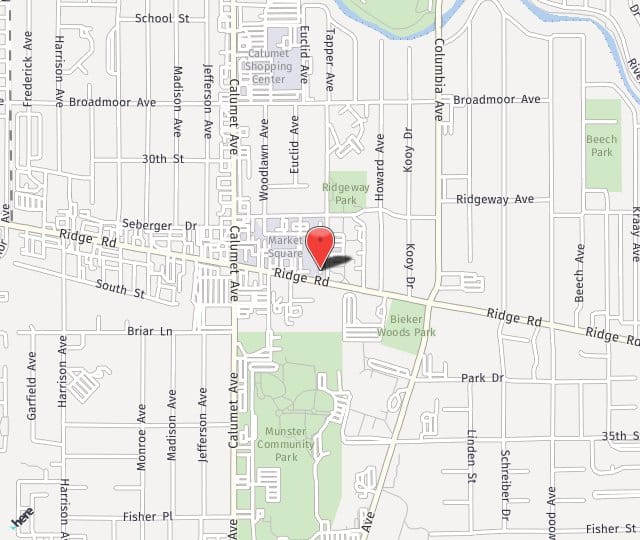A Conservative Approach to Treatment
At Region Vein, we understand the challenges of managing chronic venous insufficiency (CVI), which is why we often begin with a conservative approach to treatment.
Conservative measures serve as the initial step in managing CVI and, while they do not directly treat the underlying issue, they offer symptomatic relief and can slow down the progression of other problems associated with CVI. These measures are also beneficial for recovery after treating varicose and spider veins.
The Following are Examples of Conservative Measures:
- Compression socks and sleeves: These aid in preventing blood pooling in the leg veins by applying graduated compression, which is weaker at the thigh and stronger at the ankle. Compression therapy is particularly effective in improving blood flow and can benefit athletes seeking enhanced performance or relief from leg pain.
- Anti-inflammatory medicine: This medication helps reduce inflammation and alleviate discomfort caused by CVI.
- Regular low-impact exercise: Engaging in exercises such as walking or swimming can promote better circulation and overall leg health.
- Weight loss: Losing excess weight can relieve pressure on the leg veins, thereby improving CVI symptoms.
- Elevating legs during the day: Raising your legs periodically throughout the day can aid in reducing swelling and improving blood flow.
Alongside compression therapy, making lifestyle changes like elevating your legs and regularly participating in low-impact exercise can enhance circulation. If conservative measures do not provide sufficient relief or if you wish to address the underlying issue of CVI, we can create a personalized treatment plan for you. Our dedicated team at Region Vein is here to assist you, so please feel free to call our office at 219-595-3095 to schedule a consultation.
Lifestyle Changes
In addition to compression therapy, making lifestyle changes like elevating your legs periodically throughout the day and regularly engaging in low-impact exercise can improve your circulation. If you’re overweight, this can put extra pressure on the veins in your legs and worsen the symptoms of CVI.
What if Conservative Measures aren't enough?
If these conservative measures aren’t providing you with enough relief or you want to address the underlying issue of CVI, we can create a unique treatment plan for you. We are here to help, so please don’t hesitate to call our Region Vein office at 219-595-3095 to schedule a consultation.
FAQs
Chronic venous insufficiency is a medical condition that is caused by improper blood flow into the veins of the legs, which leads to inadequate blood return to the heart. Typically, the veins have one-way valves that help to prevent blood from flowing backward. However, in individuals with CVI, the valves are weakened, allowing blood to pool in the feet and legs instead of returning to the heart.
This blood pooling often leads to a variety of symptoms and complications, which can include:
- Leg Pain and Swelling. Ongoing leg heaviness, discomfort, or aching, typically occurring with prolonged sitting and standing. Some patients also develop swelling in their lower legs and ankles.
- Skin Changes. Over time, CVI can lead to changes to the skin in the lower legs. The skin may take on a brown or reddish hue, appear thickened or dry, and may also venous stasis ulcers.
- Varicose Veins. These veins are enlarged, bulging, or twisted near the surface of your skin. Varicose skin is usually a telltale sign of CVI.
- Leg Fatigue and Cramping. Patients with CVI may experience ongoing feelings of leg fatigue or cramping throughout the day.
Compression socks help to improve the blood circulation in the legs. Gentle, graduated pressure on the legs helps to support the veins and improves venous return of blood to the legs back to the heart. Compression socks also help prevent blood pooling in the lower extremities with gentle compression.
While anti-inflammatory medication is not typically prescribed for CVI, it may help to alleviate some of the symptoms, such as leg pain. However, it is important to note that anti-inflammatory medicine will not address the underlying cause of CVI itself. You will need to consult with Dr. Karamichos for a more comprehensive treatment plan.
Yes, certain lifestyle changes can help with the management of CVI. For example, regular activity, such as walking and swimming, promotes proper blood flow in the legs while strengthening the calves. In addition, maintaining a healthy weight can also help reduce the symptoms of CVI.
Strive to eat a diet rich in fruits, vegetables, whole grains, and lean proteins. You should also avoid extended periods of sitting and standing, which can exacerbate your symptoms. Be sure to take regular breaks throughout the day.
If conservative measures are not enough to provide adequate relief, it is best to enlist the help of a qualified vein specialist, such as Dr. Karamichos. He will assess the symptoms you are currently experiencing as well as your medical history to determine the best course of action. It is important to be transparent about the symptoms and possible complications you are experiencing.
Schedule an Appointment
If you are struggling to manage your CVI symptoms, Dr. Karamichos is here to help. Contact us at 219-595-3095 to schedule an appointment today.


